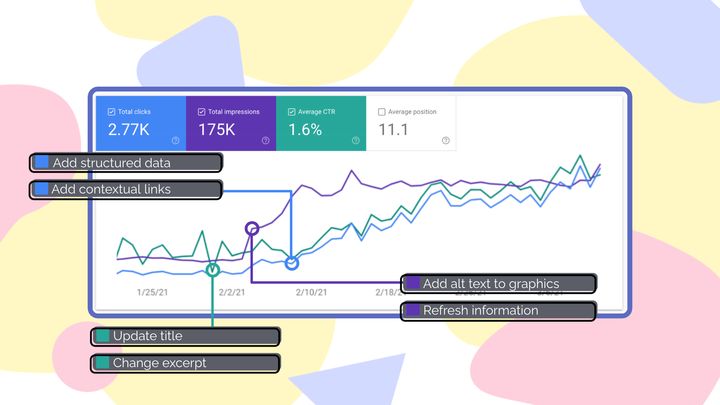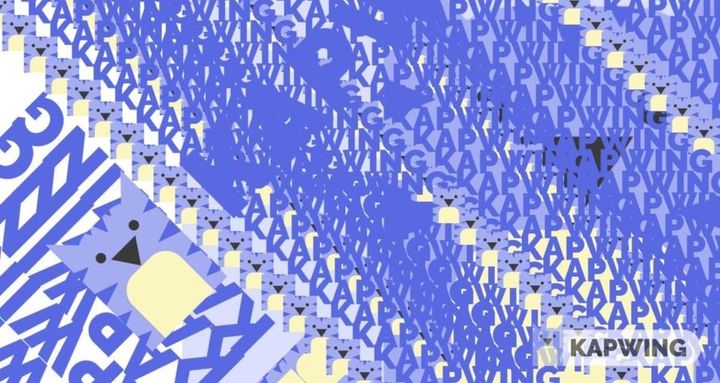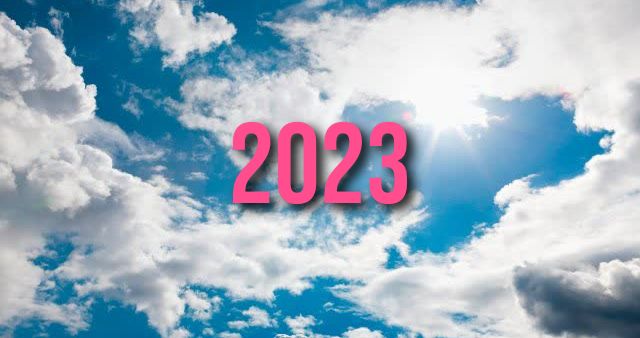What I've Learned from the 16 Engineers who Turned Down Job Offers at Our Startup
In our three years of trying to recruit top engineering talent, we've made 36 job offers to engineering candidates, and 16 of them turned us down. Here's what I've learned about convincing engineers to join your startup.
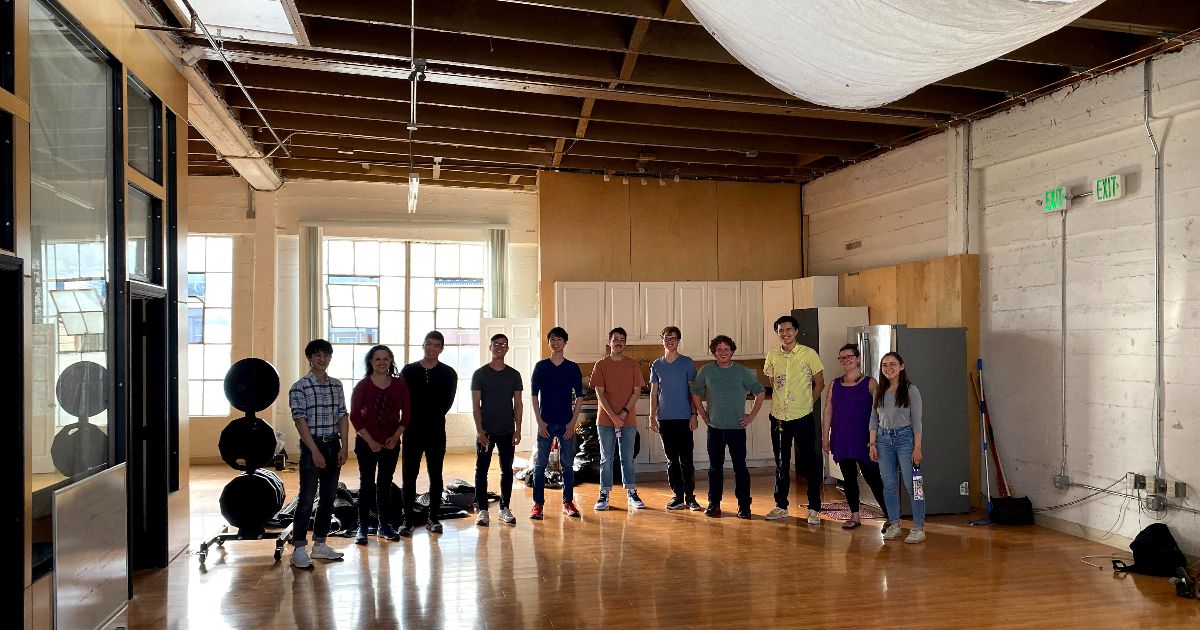
I'm the cofounder and CEO of Kapwing, a 30-person company based in San Francisco. In our three years of trying to recruit top engineering talent, we've made 36 job offers to engineering candidates, and 16 of them turned us down.
Like a sales or fundraising rejection, every startup founder and recruiter knows the disappointment of rejection from an engineer who you've pitched and gone through the interview process with. In this article, I'll share my experience with closing engineering candidates, my own insight into how engineering candidates make decisions on job offers from startups, and advice for other entrepreneurs trying to grow their teams quickly.
What is "Closing"
"Closing" a candidate refers to convincing someone to join your company after you've decided that you want to hire them. For Kapwing and many other startups, the closing efforts refer to things we do after a candidate gets through our interview process. Since our interview process includes a week-long project and multiple interviews, candidates likely already have an interest in joining before getting to the offer stage.

Closing Candidates at Kapwing
Kapwing is a Series A company with 16 engineers all based in San Francisco. Overall, we've closed 56% of the engineering candidates who made it all the way through our interview funnel.
Most of the reasons why candidates told us they decided not to take an offer fell in one of these three categories: Compensation, Stage of Company, and Domain.
- Compensation: 4 engineers (25%) ended up turning down Kapwing because they had a significantly better financial option at another company.
- Stage: 4 engineers (25%) turned down Kapwing because it didn't fit the stage of company they wanted. For example, one engineer needed an H1B visa, and we mutually agreed that it was safer for them to go to a FAANG company with more in-house legal support instead of joining Kapwing. 1 decided to cofound a company instead.
- Domain: 5 engineers (31%) turned us down because they didn't connect with Kapwing's mission to empower creators. These make me the most sad as I love creators and think the work we do at Kapwing is super important, but I also understand that there are many hard problems out there to solve.
There are some times when it's not clear why an engineer decided to go with a different offer. Every situation is different, some unsurprising and some very disappointing. A few other non-obvious takeaways from the data
Startups competing with other startups for talent, not big companies
Most of the time, engineers who turned us down decided to join other startups instead. Of the 16 people who turned down offers, 10 engineers went to a different startup, 4 stayed in their current role, and 2 took jobs at big companies.
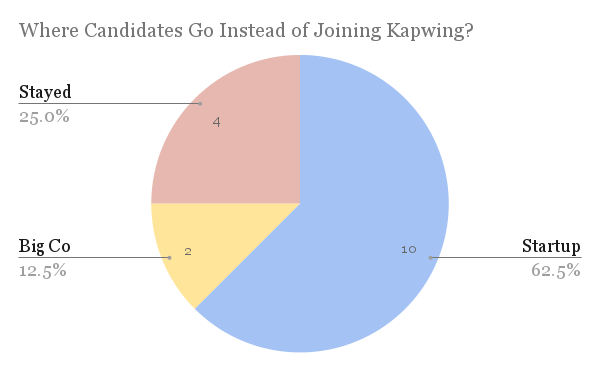
Pre vs post pandemic
Our close rate has gone down after the pandemic (50%) compared to before the pandemic (64%). Since we've been working and recruiting remotely, we've had 11 engineers join, but we made 21 engineering offers.
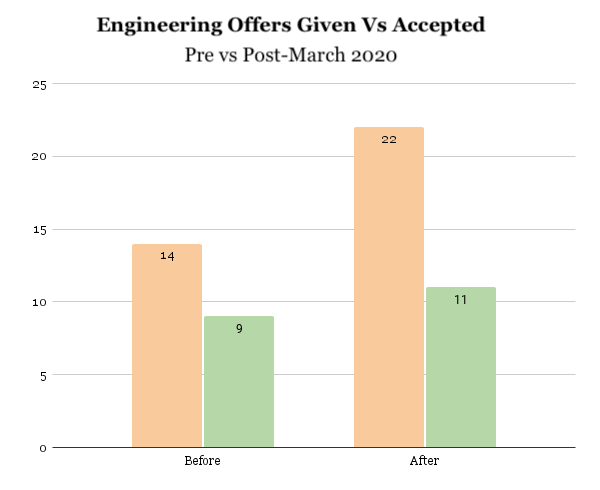
Some reasons why our close rate may have decreased since March 2020
- Faster and less high-touch interview process means that more candidates who are not fully sold get through to the end
- As we've grown, hiring responsibilities are more distributed across the team, which may make the process less personalized. Compared to the early days, I'm personally busier and less involved with every hiring process.
- In-person events previously helped us close candidates and convince them to join. We used to invite candidates to an in-person onsite interview and lunch with our team; now, we do two virtual interviews and no lunch.
- The flood of venture capital in tech means that there might be more competition for talent. Other changes in the market, like a hesitancy to leave a secure job during 2020, may have also made it harder to convince engineers to join.
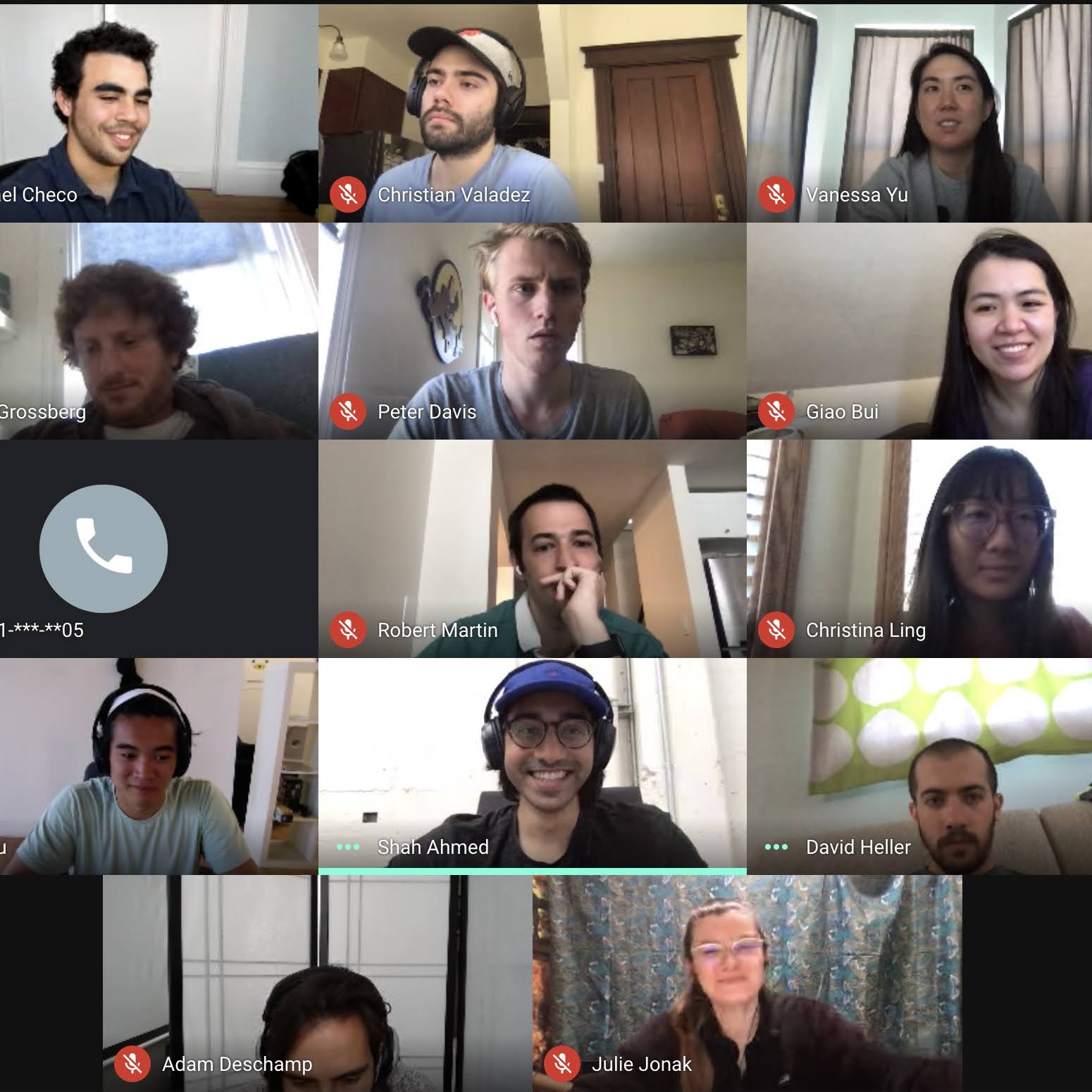
For us, it was harder to hire our friends
I notice in the data that engineers sourced from in-house referrals (mostly friends of the cofounders) have a lower close rate - 36% - than inbound applicants, sourced, or externally referred candidates. It’s possible that our friends are more likely to go through the interview process before they’re ready to commit to a new role, or possible that people in our network tend to have more options.
How We Close Candidates
Content Marketing
After three years of recruiting for Kapwing, I've learned that creating a positive impression of your company through content marketing, publicity, and thought leadership is the highest ROI with hiring. Leaders who continually invest in highlighting their culture, mission, engineering challenges, and growth trajectory are more likely to attract top talent and convert at every stage of the funnel.
At Kapwing, nearly every candidates who joins mentions the company blog, TechCrunch articles, Instagram account, or YouTube channel before they accept a job offer. We set OKRs around publishing engineering blog posts and have full-time resources dedicated to our social media channels. Company leaders spend time writing articles about our journey, like this one!

Personalization
We ask about the candidate's career motivations and goals - "What are you looking for in your next role?", "What gets you fired up at work?", etc - during the initial phone screen. Later in the process, the answers to these questions give us insights into how to frame the opportunity at Kapwing. For example, if I know that a candidate cares a lot about product design, we will emphasize the role of our engineers in making product decisions once they join.
At the end of the day, everyone's goal is to help the candidate find a job that they will love and thrive in. It's important to show that you care about their goals rather than just slotting them into a cookie-cutter position.
Expiring offers and starting bonuses
For the first 18 months of recruiting at Kapwing, we gave offers without a decision deadline because I used to dislike setting "artificial deadlines" on job offers. But, we got burned a few times after getting our hopes up and waiting a long time for candidates to make a decision. In my experience, long wait times deplete morale from our engineering managers and rarely result in a different outcome.
Now, we make offers that expire within one week. That is, we set a deadline for a decision seven days after sending the candidate an offer letter.

If I can sense that a candidate will have multiple competing offers, we sometimes add in a signing bonus to encourage people to decide quickly. The signing bonuses expire 3-4 days after I make the offer. Setting a financial incentive for a quick decision has helped a lot with closing.
Publicity and 3P Reviews
After you make an offer to a candidate, they are in "Consideration" phase of the job search, and like a customer making a big purchase they will do thorough research to decide if they should make the leap. They will Google your company and read what others have to say about it. At Kapwing, for example, Eric and I went through the nomination process for Forbes 30 Under 30 list and stretched to build relationships with journalists to cover our fundraising rounds. These product reviews, press articles, and mentions from industry leaders help candidates build conviction.
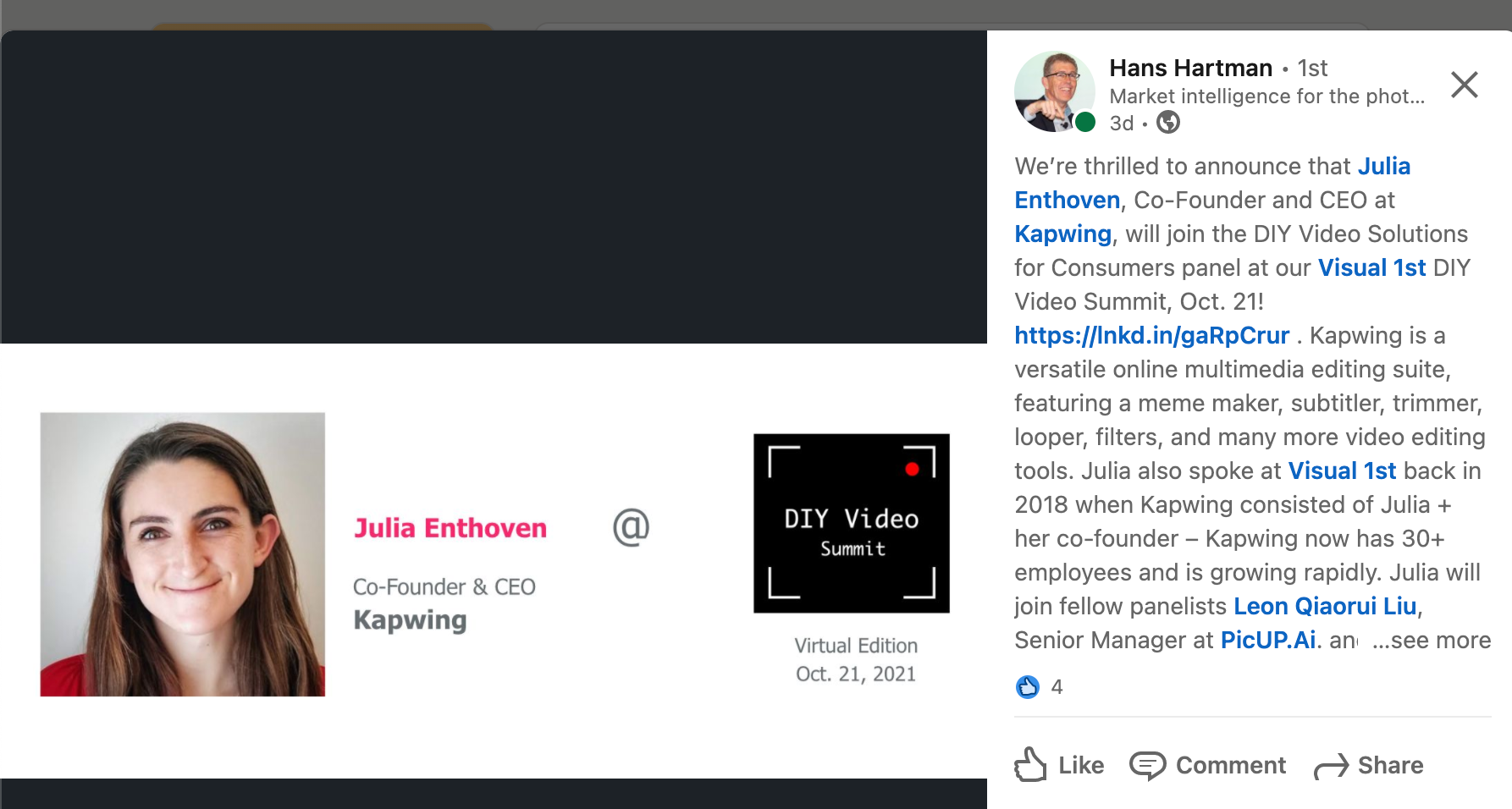
Investors can provide another source of external validation for recruits. If a candidate is on the fence, I ask one of our investors to reach out to them for a call. I'll also share in advance we know about the candidate, what their motivations are, and what their hesitations might be so that the investor can make the call as productive as possible. These calls with investors build trust since VCs have exposure to many different companies and years of operational experience to back them up.
Increase communication at the end of the funnel
Dramatically ramp up communication after a hiring manager gives the green light. Once we have conviction, we move forward quickly to make candidates feel valued and communicate with the candidate to check in before they make a decision.
- Offer letter with details: For every candidate we want to work with, I write a semi-personalized informal offer letter with full information about the company and the job position. This letter includes the manager, the start date, the responsibilities of the role, positive feedback from the interviews, our benefits, and our Series A pitch deck. It includes two options for compensation, one that is higher in equity and one that is higher in salary, as it gives the candidate some autonomy over their comp package. When a hiring manager gives the green light after the interview process, I email the candidate to schedule a follow up phone call as soon as possible and, during the conversation, share the Google Doc offer with them in writing.
- Access to founders: I also always send candidates my personal phone number as I'm most accessible via text.
- Emails from other teammates and interviewers: We publicize the candidate's information in our #recruiting channel in Slack and encourage everyone, but especially the people who interviewed the candidate, to reach out to them to congratulate them and make themselves available for questions.
- Ask the reference to email them: If we do a reference call with a promising candidate, sometimes I'll follow up with the reference to ask them to reach out to the candidate to vouch for us.
My Best Advice on Closing Candidates
We hire in the Bay Area and have made offers to only 36 out of the thousands of engineering applicants we've screened. So, we know that by the time we're making an offer, we're talking to a candidates with many good options. Here's my advice for other founders from 3 years of recruiting engineering candidates:
- Set comp brackets, and break them when you want to. Compensation brackets give you confidence that you're offering a highly competitive package and enable you to pay engineers fairly. However, even when your bands are highly competitive, some candidates will have expectations that are out of band. Founders have to make a decision on when and how willing they are to break their own rules. If you have access to plenty of capital and are blitzscaling, you'll probably just match candidates' expectations, even if out of band. We only break our rules in exceptional circumstances when a candidate has 4s ("Strong hires") from every interviewer they talked to. This comp philosophy does affect close rates.
- Individual connections make a difference, always. Connecting a candidate with people that actually care about helping that person make the best decision and are honest with them about company culture has often swayed engineers who were on the fence. It's harder to nurture these connections during a pandemic, but useful if you can.
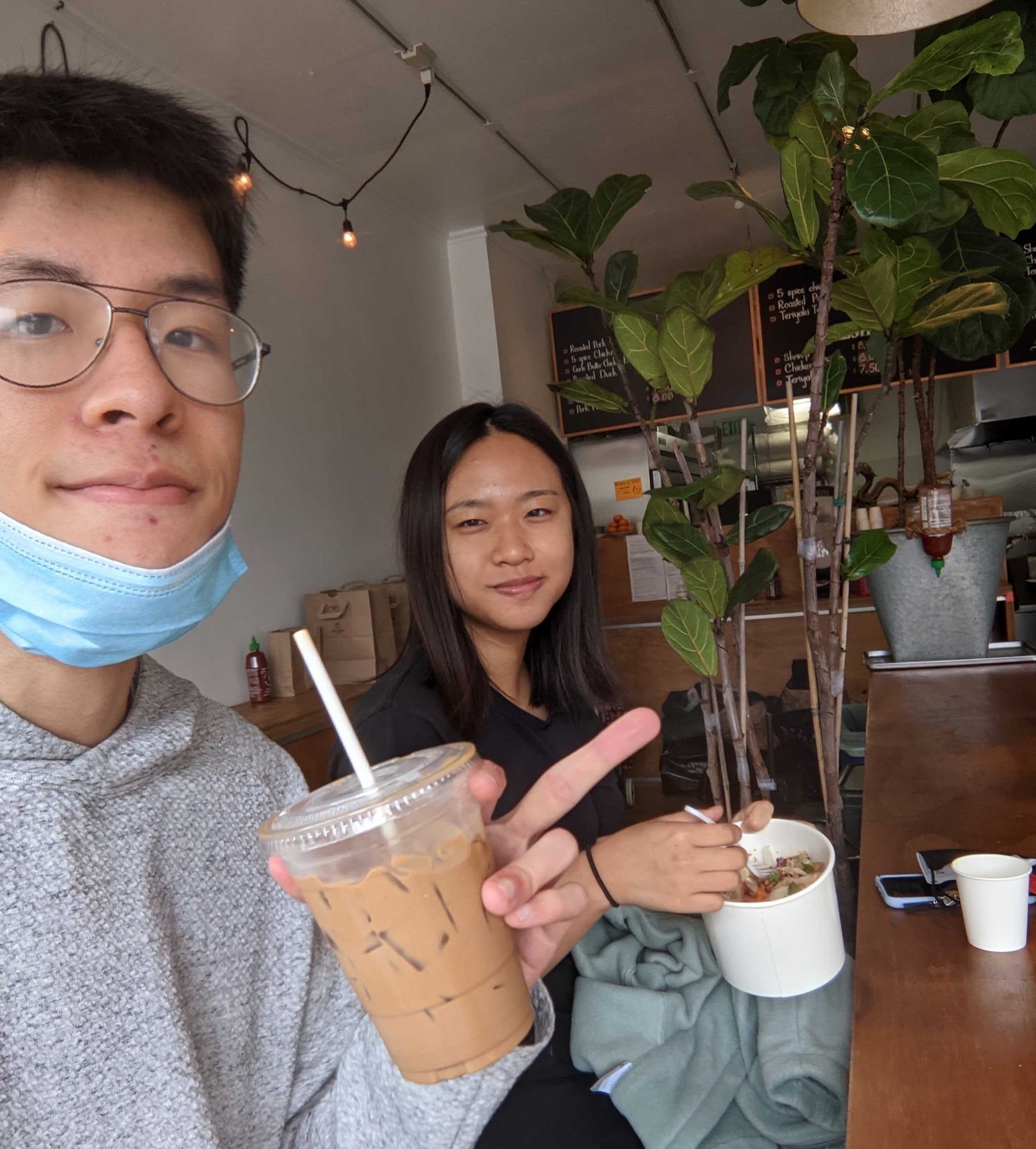
- Going the extra mile shows candidates that you care and that they're special. Of course, this type of high-touch personalized system is hard to scale, but if you can it works.
- Talking with founders is a valuable and rare connection. When I do a phone screen, negotiations, closing conversations, and outreach myself, candidates are much more likely to respond and talk. We haven't been able to replicate that with other teammates or contract recruiters easily. As you grow, create opportunities for candidates to talk to the founders directly to close candidates.
It Is Possible to Close Candidates Who Are on the Fence
In reality, no one has a 100% close rate. Back in 2017, I myself turned down offers from two early-stage startups (Handshake and Robinhood) before starting Kapwing, so I can confirm that even Unicorn CEOs Garrett Lord and Vlad Tenev deal with rejection. Underneath the bravado of Silicon Valley, there are many entrepreneurs who either struggle to close, and it's a topic that's not talked about enough.
We have many examples of engineers who turned down competing offers to join Kapwing. Most notably, Josh, our first engineer, told me "No," but changed his mind a week later. We sensed Josh's hesitancy and stayed in touch with him after he turned us down, and his work has changed the course of our company. I've heard similar stories from other founders who kept in touch with promising candidates and persuaded them over the long haul.
My final words of encouragement for entrepreneurs is not to get emotionally attached to individual candidates. Remember that you have the special thing - a flourishing business - that will live on as long as you keep it going. It's a tough balance to pour your energy into a candidate and have them turn you down, but Silicon Valley is small and you'll hopefully get the opportunity to work with great people again down the road. Like most activities in Startup Land, a spirit of abundance and optimism will make you more successful in the long run.
Thanks for reading, and happy recruiting! If you're an engineer thinking about joining a startup, hi 👋🏼 Please reach out and check out our open roles.
Other helpful resources
- Make Stronger Offers to Engineering Candidates and Boost Your Closes, First Round Capital
- Convincing Engineering to Join Your Team, Harj Taggar
- Always Be Closing, Firstmark

